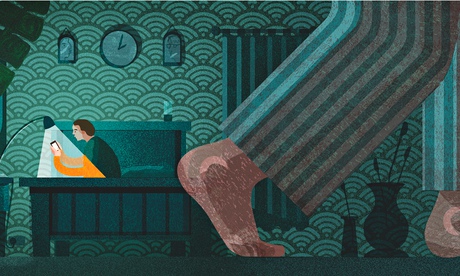
I’m not the first to point out that the rise of smartphones has killed one rather pleasurable form of conversation – the kind that involves confidently chuntering on about subjects you dimly recall, or know nothing about, as if you were really an expert. Now that Wikipedia’s a click away, it’s no longer safe to regale your friends with your theory about the mysterious disappearance of JFK’s brain, or what happens if you wake a sleepwalker, or how Madonna and Camilla Parker Bowles are cousins: some killjoy will inevitably reach for an iPhone to clarify the facts. These days, the last refuge of the overconfident bullshitter is on country walks, where, thanks to patchy mobile reception, the name of a particular cloud formation or breed of sheep is still whatever I damned well want it to be.
Yet the internet isn’t about to end the widespread human tendency to claim to know about topics you don’t – and even sincerely to believe that you know. The easiest way to demonstrate how prevalent this is, as outlined in a forthcoming paper in Psychological Science, is to ask people about “impossible knowledge” – facts they couldn’t possibly know, because researchers made them up. Again and again, in studies at Cornell University, people who fancy themselves knowledgable about science will say they understand what’s meant by “ultra-lipid” or “plates of parallax”, while those who think they’re well-versed in finance will nod along to talk of “pre-rated stocks” or “annualised credit”, even though no such things exist.
This tendency to spout drivel in a tone of authority was exploited to maximum comic effect by Chris Morris in Brass Eye. (I’ll always treasure the memory of Britt Ekland praising a fictional animal charity that “stopped a pig throwing itself out of a tree on to a python in a two-way death pact in Chester”.) But it’s not just attention-seeking celebrities – we’re all susceptible; and, troublingly, even genuinely being an expert doesn’t seem to confer immunity. The curse of overconfidence afflicts anyone who believes themselves to be knowledgable, including those who hold that belief because it’s true. Thinking of ourselves as experts – even when we are experts – seems to turn us, at least partially, into fools.
All of which implies something odd about how we assess our own levels of knowledge, as Wray Herbert explained in a post on the Psychological Science blog. Say you’re about to sign a mortgage agreement: is this the kind of thing you know about, or should you seek assistance? You’d have thought the answer might come from simply looking inside, consulting the database of your brain, and seeing whether it included plenty of stuff about mortgages. But the “impossible knowledge” studies suggest we do something very different instead: we ask if we’re the kind of person who knows about such matters – or ought to know about such matters – and then, if the answer’s yes, conclude that we actually do, even though we might well not.
By the way, it’s fine to wake a sleepwalker, providing you do it gently. No, really. Trust me on this. I just know.
• oliver.burkeman@theguardian.com

